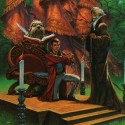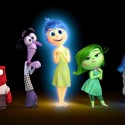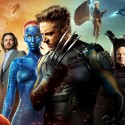A guest post by Jay Scarlet
I’ve recently been re-reading a number of books by Terry Brooks, in part to refresh my memory ahead of the upcoming adaption of his Shannara series on MTV (so excited!!), in part out of a desire to revisit some of the books I had loved while growing up. In addition to Shannara books, I also read Magic Kingdom for Sale – Sold! for the first time in probably 20-25 years.








